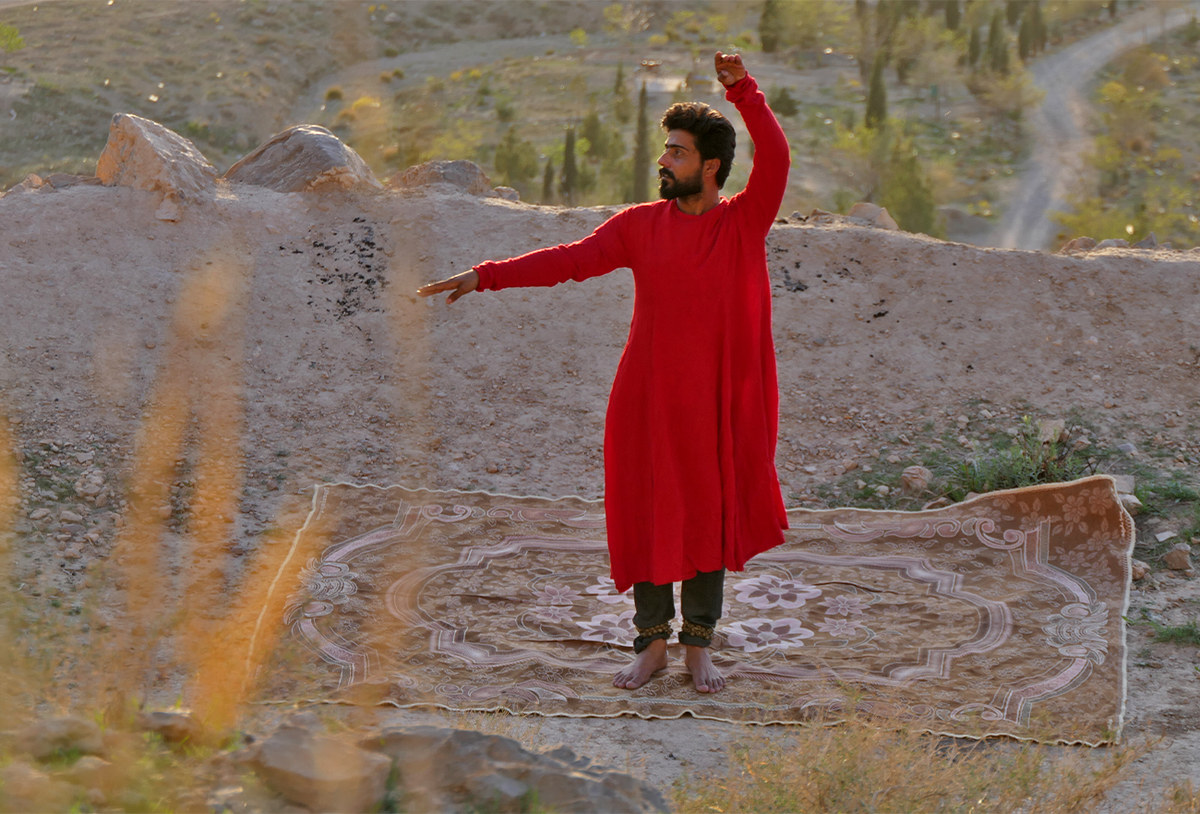QUETTA: Ahmed Khan first heard classical music as a young boy while accompanying his father as a shepherd in the mountains of the impoverished Awaran district in southern Pakistan.
As the tunes played on a portable radio, the eight-year-old boy was mesmerized by the rhythmic beat of the tabla and felt himself tapping along. There began a dancing career that led him from watching videos online to becoming the first person from the deeply conservative Balochistan province to get an MPhil degree from the prestigious National College of Arts (NCA), and pursue a professional career in Kathak, a classical dance form rooted in Hindu mythology and traditionally considered the preserve of women.
“I think I am the first [Kathak] dancer in Balochistan, there is no other performer who has come forward,” Khan, 32, who goes by the stage name Ahmed Ibn Sakina, told Arab News as he tied an anklet bearing dozens of tiny bells on his bare feet and got ready to practice his craft on a mountaintop bordering Quetta city.
Kathak, one of eight classical dance genres in India, is over 2,000 years old, according to some historians, and was performed in royal courts in the Mughal era, finding favor among both Hindu and Muslim traditions.
The genre’s lineage is associated with three cities in India: Lucknow, Banares and Jaipur.
“I perform the semi-classical Kathak dance attributed to the Lucknow Gharana [household] in which a kathakar performs with his hands, facial expressions and feet,” Khan said, explaining that ‘katha’ was the Sanskrit word for storytelling.

Ahmed Khan, who goes by the stage name Ahmed Ibn Sakina, performs kathak dance on the eastern mountains of Quetta, Pakistan, on March 16, 2022. (AN Photo)
After he graduated from NCA, Khan had many offers to teach dance elsewhere in the country but decided to return to his home province.
“I thought I should go to Balochistan, whatever I have learnt I should teach it to the people of Balochistan,” he said. “But most people in this region know very little about performing arts or realize their significance.”
Though Khan’s family supported his passion for dance, he said he was ridiculed by his friends and cousins who could not grasp the idea of a male Kathak dancer. In recent years, he said he had also faced threats of death and sexual violence on social media.
But Khan said he had stood up to such abuse from a very young age, and was undeterred by it, even using the customarily female name Sakina, his mother’s, as his identity on stage.
“I have received many threats,” he said. “People use fake IDs to say we will kill you, when you come to Quetta, we will make you dance naked.”
The dancer smiled gently: “People keep talking but if I get intimidated by what people say I won’t be able to live. People don’t even want you to live.”
His teacher and former Pakistani actress Zareen Panna said people like Khan deserved encouragement and support.
“Kathak dancers like Ahmed, who belong to underprivileged regions, must be promoted in Pakistan,” she said, “since they get fewer opportunities than people who are based in other cities.”
The chief minister’s adviser on culture, Abdul Khaliq Hazara, said the provincial administration was keen on promoting the arts in Balochistan.
“Every existing culture in this world has a unique history which goes back hundreds of years,” he said. “I have seen Ahmed’s performance in a private function which was astonishingly good, but I unfortunately did not get a chance to meet him again.”
Meanwhile, Khan said he wanted to get a doctorate in Kathak from India where leading masters of the craft taught students from across the world, though he currently did not have the resources to pursue this dream.
“My primary source of income is my dance performances,” he said, as he began his rhythmic footwork on the mountaintop, “but I barely earn Rs30,000 a month through them.”















